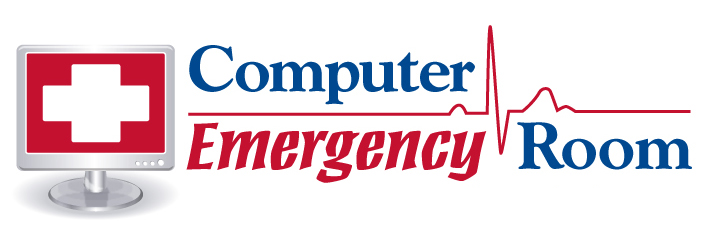In today’s digital age, small businesses are facing an ever-increasing threat from cyberattacks. These attacks can cripple a small business, leading to financial losses, data breaches, and reputational damage. Fortunately, there are steps you can take to mitigate these risks and build a secure foundation for your network.
This article will guide you through the essential aspects of network security for small businesses. We’ll cover the key threats, explore effective security measures, and provide actionable tips to implement a robust defense strategy.
Why Network Security for Small Businesses Matters
While large corporations often have the resources to dedicate entire teams to cybersecurity, small businesses are frequently understaffed and lack the budget for advanced security solutions. This can make them prime targets for cybercriminals who exploit these vulnerabilities.
Here’s why network security for small businesses is critical:
- Financial Loss: Data breaches can be devastating for small businesses. The cost of recovery, including repairing compromised systems, notifying customers, and potential fines, can be significant.
- Data Breaches: Small businesses often store sensitive customer data, such as financial information and personal details. A data breach can expose this information, leading to identity theft and other problems for your customers.
- Reputational Damage: A cyberattack can severely damage your business reputation. Customers may lose trust in your ability to protect their data, leading to a decline in sales and customer loyalty.
- Disruptions: Cyberattacks can disrupt your business operations, leading to downtime and lost productivity. This can have a significant impact on your bottom line.
By implementing effective network security measures, you can significantly reduce these risks and protect your business from cyber threats.
Common Network Security Threats for Small Businesses
Understanding the most common network security threats can help you focus your defenses. Here are some of the most prevalent dangers for small businesses:
- Malware: This malicious software includes viruses, worms, ransomware, and spyware. Malware can steal data, disrupt operations, and damage your systems.
- Phishing Attacks: These deceptive emails or messages attempt to trick recipients into revealing sensitive information such as login credentials or financial details.
- Ransomware: This type of malware encrypts your data, making it inaccessible until you pay a ransom to the attackers.
- Denial-of-Service (DoS) Attacks: These attacks overwhelm your network with traffic, making it unavailable to legitimate users.
- Unsecured Wi-Fi: Public Wi-Fi networks are often unsecured, making it easy for attackers to eavesdrop on your communications and steal data.
- Weak Passwords: Simple or reused passwords are easy for attackers to crack, granting them access to your systems and data.
Essential Network Security Measures for Small Businesses
Now that we understand the threats, let’s explore some essential network security measures to safeguard your small business:
- Firewalls: A firewall acts as a barrier between your internal network and the internet, filtering incoming and outgoing traffic and blocking malicious activity.
- Antivirus and Anti-Malware Software: Install and maintain up-to-date antivirus and anti-malware software on all devices connected to your network.
- Strong Password Policies: Enforce strong password policies that require users to create complex passwords and change them regularly. Consider using a password manager to help users create and manage strong passwords.
- Secure Wi-Fi: If you offer Wi-Fi to customers or employees, ensure it is secure with WPA2 encryption and a strong password. Avoid using public Wi-Fi networks for business purposes.
- Employee Training: Educate your employees about cyber security threats and best practices. Train them to identify phishing attempts, use strong passwords, and report suspicious activity.
- Data Backups: Regularly back up your critical data to a secure offsite location. This allows you to recover your data in case of a cyberattack or hardware failure.
- Software Updates: Keep your operating systems, software applications, and firmware up to date with the latest security patches. Outdated software contains vulnerabilities that attackers can exploit.
- Physical Security: Secure your physical devices and network equipment to prevent unauthorized access. This includes locking down server rooms and restricting access to sensitive equipment.
- Access Control: Implement a system for access control to restrict access to sensitive data and systems only to authorized users.
- Multi-Factor Authentication (MFA): MFA adds an extra layer of security by requiring a second factor, such as a code from a mobile app, in addition to a username and password to login.
Building a Culture of Security
Network security is not just about technology; it’s also about creating a culture of security within your organization. Here are some tips to achieve this:
- Leadership Buy-in: Secure leadership buy-in for cybersecurity initiatives. When leaders prioritize security, it sends a strong message to employees and demonstrates the importance of cybersecurity for the organization’s success.
- Regular Security Awareness Training: Provide regular security awareness training to all employees. This training should educate them about the latest threats, best practices for using technology securely, and how to identify and report suspicious activity.
- Open Communication: Encourage open communication about security concerns. Employees should feel comfortable reporting suspicious activity or potential security breaches without fear of reprisal.
- Incident Response Plan: Develop a clear incident response plan that outlines how to respond to a cyberattack. This plan should identify roles and responsibilities, communication protocols, and steps to take to recover from an attack.
Security Solutions for Small Businesses
While large enterprises have dedicated IT security teams and complex security solutions, finding the right security solutions for small businesses can be a challenge. Here are some factors to consider:
- Budget: Security solutions range in price from free to very expensive. Determine your budget for security and choose solutions that provide the most value for your investment.
- Ease of Use: Security solutions should be easy for you and your employees to use. Complex solutions may require additional training or IT expertise, which may not be feasible for small businesses.
- Scalability: Choose security solutions that can scale with your business as you grow. This will save you from having to constantly upgrade or replace your security infrastructure.
Here are some popular security solutions geared towards small businesses:
- Managed Security Service Providers (MSSPs): MSSPs offer a range of security services, including monitoring, threat detection, and incident response. This can be a good option for small businesses that lack the in-house expertise to manage their own security.
- Cloud-Based Security Solutions: Cloud-based security solutions offer a number of advantages for small businesses, including ease of deployment, scalability, and lower upfront costs. These solutions can provide essential security features such as firewalls, intrusion detection, and data encryption.
- Open-Source Security Tools: There are a number of open-source security tools available that can be used by small businesses. However, these tools often require more technical expertise to implement and manage.
Conclusion
Network security for small businesses is no longer an option; it’s a necessity. By understanding the threats, implementing essential security measures, and building a culture of security, you can significantly reduce your risk of a cyberattack and protect your business from financial losses, data breaches, and reputational damage.
Remember, network security is an ongoing process. New threats emerge constantly, so it’s important to stay informed, update your security measures regularly, and test your defenses to ensure they are effective.
Don’t wait for a cyberattack to cripple your business. Proactive security is essential!
Here at the Computer Emergency Room, we understand the unique challenges faced by small businesses when it comes to network security. We offer a range of security solutions and services designed to protect your business from cyber threats.
Contact Computer Emergency Room today to discuss your cybersecurity needs and learn how we can help you build a secure foundation for your small business.

